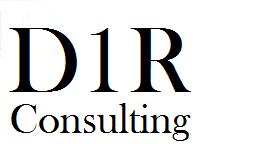Local Licensing Boards
- Details
- Created: Sunday, 12 February 2012 09:12
- Published: Sunday, 12 February 2012 14:13
- Written by David DeCiero
Local licensing boards have the responsibility of managing the liquor licenses for a municipality in Massachusetts. This means that instead of having to deal with one regulatory body, you will have to interact with multiple based on the towns or cities in which you do business. The importance of the people on these boards cannot be understated.
The regulatory system in providing off-site liquor licenses in Massachusetts is complex. From all of the licenses needed from the state Alcoholic Beverages Control Commission (ABCC), to the federal TTB, they have the local level as well. The ABCC and the TTB are pretty straightforward, you fill out a form, pay the fee, and as long as there are no red flags, you’ll get approved. If you’ve been convicted of a felony, that may cause some problems, but for most people this is not an issue. At the local level, though, that’s where things become more nuanced. It isn’t about filling out a form or paying a fee and meeting certain criteria. The local licensing boards (LLB) are tasked with taking into account qualitative factors in determining who should receive a liquor license. The problem with qualitative is that it can’t be backed up. It can either be a person’s hunch or feeling. This isn’t saying that those are not always unwarranted, but no one knows. It ends up being a crapshoot as to whether or not they approve your permit. The problem with this is that this is your business. If they don’t approve the permit, then you lose all of the time and effort put into deciding on that location. They hold all the power over your business.
Recently, we heard of a LLB delaying an approval for a new liquor store in a fairly large Massachusetts city. There were two reasons given for the delay were that the store may be too close to another liquor store and that one of the board members was not there. I happen to know the city, and within that same area, there are about 10 restaurants with on-site liquor licenses. The second reason was that one of the board members didn’t show up. So, irrespective of whether the applicants were ready, this license was not approved. They had to wait until the next meeting. Then, there is no guarantee that the same objection about location will be raised again. At that point, it is either time to start over somewhere else, or work with the board for approval. Either way, it increases the delay and assures you of having no customers.

